Intro
Discover the 5 key liver function tests, including ALT, AST, and bilirubin, to diagnose liver health issues, liver damage, and liver disease, ensuring timely medical intervention and effective treatment.
The liver is a vital organ that plays a central role in maintaining our overall health. It performs a wide range of functions, including detoxification, protein synthesis, and the production of biochemicals necessary for digestion. Given its importance, it's crucial to monitor liver health through various tests. In this article, we'll delve into the world of liver function tests, exploring their significance, types, and what they reveal about our liver health.
Liver function tests are essential for diagnosing and managing liver diseases, such as hepatitis, cirrhosis, and liver cancer. These tests help healthcare professionals assess the liver's ability to perform its functions, identify potential problems, and monitor the effectiveness of treatments. With the increasing prevalence of liver diseases, it's essential to understand the different types of liver function tests, their benefits, and how they contribute to maintaining optimal liver health.
The liver's intricate functions make it a complex organ to study, but advances in medical technology have led to the development of various liver function tests. These tests can be broadly categorized into several types, each designed to assess specific aspects of liver function. By understanding the different types of liver function tests, individuals can take a proactive approach to maintaining their liver health, reducing the risk of liver diseases, and promoting overall well-being.
Liver Function Tests: An Overview
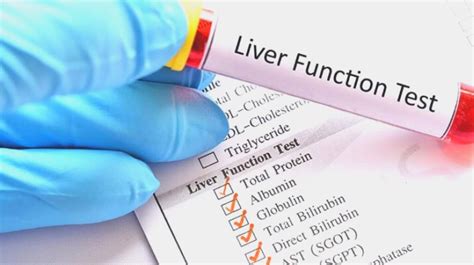
Liver function tests are a group of tests used to assess the liver's ability to perform its functions. These tests measure various enzymes, proteins, and other substances in the blood to evaluate liver health. The most common liver function tests include alanine transaminase (ALT), aspartate transaminase (AST), alkaline phosphatase (ALP), gamma-glutamyl transferase (GGT), and bilirubin. Each test provides valuable information about the liver's condition, helping healthcare professionals diagnose and manage liver diseases.
Types of Liver Function Tests
Liver function tests can be categorized into several types, including: * Blood tests: These tests measure various substances in the blood to assess liver function. * Imaging tests: These tests use technologies like ultrasound, CT scans, and MRI scans to visualize the liver and detect any abnormalities. * Liver biopsy: This test involves removing a small sample of liver tissue for examination under a microscope. * Other tests: These include tests like the liver function panel, which combines multiple tests to provide a comprehensive assessment of liver health.Alanine Transaminase (ALT) Test

The alanine transaminase (ALT) test measures the level of ALT enzyme in the blood. ALT is an enzyme found primarily in the liver, and elevated levels can indicate liver damage or disease. The ALT test is often used in conjunction with other liver function tests to diagnose and monitor liver conditions. A high ALT level can indicate liver inflammation, damage, or disease, while a low level may suggest liver dysfunction or other health issues.
Aspartate Transaminase (AST) Test
The aspartate transaminase (AST) test measures the level of AST enzyme in the blood. Like ALT, AST is an enzyme found in the liver, and elevated levels can indicate liver damage or disease. The AST test is often used to diagnose and monitor liver conditions, particularly in conjunction with the ALT test. A high AST level can indicate liver inflammation, damage, or disease, while a low level may suggest liver dysfunction or other health issues.Alkaline Phosphatase (ALP) Test

The alkaline phosphatase (ALP) test measures the level of ALP enzyme in the blood. ALP is an enzyme found in the liver, bones, and other tissues, and elevated levels can indicate liver damage or disease. The ALP test is often used to diagnose and monitor liver conditions, particularly in conjunction with other liver function tests. A high ALP level can indicate liver inflammation, damage, or disease, while a low level may suggest liver dysfunction or other health issues.
Gamma-Glutamyl Transferase (GGT) Test
The gamma-glutamyl transferase (GGT) test measures the level of GGT enzyme in the blood. GGT is an enzyme found primarily in the liver, and elevated levels can indicate liver damage or disease. The GGT test is often used to diagnose and monitor liver conditions, particularly in conjunction with other liver function tests. A high GGT level can indicate liver inflammation, damage, or disease, while a low level may suggest liver dysfunction or other health issues.Bilirubin Test
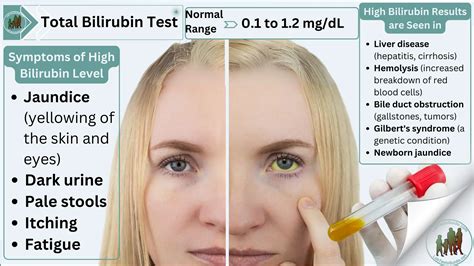
The bilirubin test measures the level of bilirubin in the blood. Bilirubin is a pigment produced during the breakdown of red blood cells, and elevated levels can indicate liver damage or disease. The bilirubin test is often used to diagnose and monitor liver conditions, particularly in conjunction with other liver function tests. A high bilirubin level can indicate liver inflammation, damage, or disease, while a low level may suggest liver dysfunction or other health issues.
Liver Function Panel
The liver function panel is a comprehensive test that combines multiple liver function tests to provide a detailed assessment of liver health. This panel typically includes tests like ALT, AST, ALP, GGT, and bilirubin, as well as other tests to evaluate liver function. The liver function panel is often used to diagnose and monitor liver conditions, particularly in individuals with a history of liver disease or those who are at risk of developing liver disease.Importance of Liver Function Tests
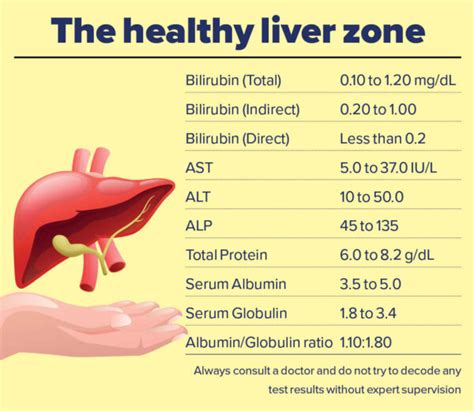
Liver function tests are essential for maintaining optimal liver health. These tests help healthcare professionals diagnose and manage liver diseases, monitor the effectiveness of treatments, and prevent complications. By understanding the different types of liver function tests and their benefits, individuals can take a proactive approach to maintaining their liver health, reducing the risk of liver diseases, and promoting overall well-being.
Benefits of Liver Function Tests
The benefits of liver function tests include: * Early detection of liver diseases * Monitoring of liver health * Evaluation of treatment effectiveness * Prevention of complications * Promotion of overall well-beingPreparing for Liver Function Tests
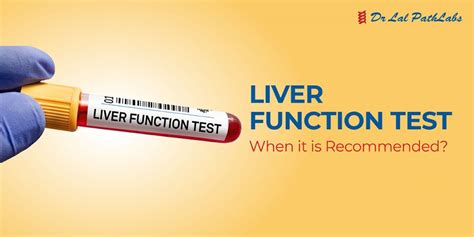
Preparing for liver function tests is crucial to ensure accurate results. Individuals should follow their healthcare provider's instructions, which may include:
- Fasting for a certain period
- Avoiding certain medications or substances
- Drinking plenty of water
- Getting enough rest
- Avoiding strenuous activities
Understanding Test Results
Understanding test results is essential to interpreting liver function test results. Individuals should discuss their test results with their healthcare provider, who can explain the results and provide guidance on the next steps. Abnormal test results may indicate liver damage or disease, while normal results may suggest optimal liver health.Common Liver Diseases
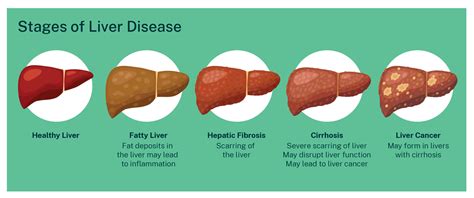
Common liver diseases include:
- Hepatitis
- Cirrhosis
- Liver cancer
- Fatty liver disease
- Liver failure
Risk Factors for Liver Diseases
Risk factors for liver diseases include: * Family history of liver disease * Obesity * Diabetes * High blood pressure * High cholesterol * Certain medications or substancesMaintaining Liver Health

Maintaining liver health is essential to preventing liver diseases. Individuals can take several steps to promote liver health, including:
- Eating a healthy diet
- Exercising regularly
- Avoiding certain medications or substances
- Getting enough rest
- Managing stress
Tips for Promoting Liver Health
Tips for promoting liver health include: * Drinking plenty of water * Eating foods rich in antioxidants * Avoiding processed foods * Getting enough sleep * Managing stressWhat is the purpose of liver function tests?
+Liver function tests are used to assess the liver's ability to perform its functions, diagnose and manage liver diseases, and monitor the effectiveness of treatments.
What are the common types of liver function tests?
+The common types of liver function tests include alanine transaminase (ALT), aspartate transaminase (AST), alkaline phosphatase (ALP), gamma-glutamyl transferase (GGT), and bilirubin.
How can I prepare for liver function tests?
+Preparing for liver function tests involves following your healthcare provider's instructions, which may include fasting, avoiding certain medications or substances, drinking plenty of water, getting enough rest, and avoiding strenuous activities.
What are the common liver diseases?
+Common liver diseases include hepatitis, cirrhosis, liver cancer, fatty liver disease, and liver failure.
How can I maintain liver health?
+Maintaining liver health involves eating a healthy diet, exercising regularly, avoiding certain medications or substances, getting enough rest, and managing stress.
In conclusion, liver function tests are essential for maintaining optimal liver health. By understanding the different types of liver function tests, their benefits, and how to prepare for them, individuals can take a proactive approach to promoting liver health and preventing liver diseases. We encourage readers to share their experiences with liver function tests, ask questions, and seek guidance from healthcare professionals to ensure optimal liver health. Remember, a healthy liver is essential for overall well-being, and taking care of it is crucial for maintaining a healthy and happy life.
